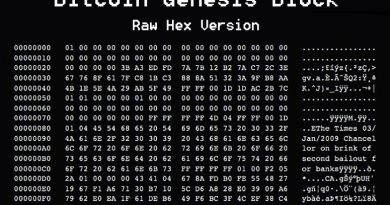How much tax do you have to pay on crypto?
The tax treatment of cryptocurrencies can vary from country to country and jurisdiction to jurisdiction. I can therefore give you a general overview, but it is important to note that the tax rules in your country may differ.
In most countries, cryptocurrencies are considered taxable assets and profits from crypto transactions are subject to income tax or capital gains tax. The amount of tax depends on various factors, such as the type of transaction (purchase, sale, exchange, mining), the holding period of the cryptocurrency and the individual tax rate.
Here are some common scenarios:
- Crypto purchaseWhen you buy cryptocurrencies, there is generally no tax liability. The increase in value of the cryptocurrency assets is not yet tax-relevant at this time.
- Crypto sales: The sale of cryptocurrencies gives rise to potentially taxable gains or losses. Taxes are calculated on the profit made, which is the selling price less the purchase price and any transaction costs.
- Crypto exchange: The exchange of one cryptocurrency for another is often treated similarly to a sale for tax purposes. The gain or loss is determined based on the difference in market value between the two cryptocurrencies at the time of the exchange.
- Crypto mining: Mining cryptocurrencies generates a taxable profit, which is calculated from the value of the coins received at the time of receipt minus the mining costs.
The exact tax regulations and allowances may vary in your country. It is therefore advisable to seek advice from a tax advisor or tax authority in your country to clarify your individual tax situation with regard to cryptocurrencies and to fulfill your tax obligations.
The taxation of cryptocurrency profits at the tax office depends on the tax regulations and laws in your country. In most countries, cryptocurrencies are considered taxable assets and profits from cryptocurrency transactions are subject to income tax or capital gains tax. Here are some general steps you should follow if you want to pay tax on crypto profits:
- Keep recordsKeep accurate records of all crypto transactions, including buy and sell transactions, exchanges and mining activities. Make a note of the date, time, type and volume of transactions and the associated costs.
- Determine the profit: Calculate the profit or loss for each transaction. This is usually done by calculating the selling price (or market value at the time of the exchange) minus the purchase price and any transaction costs.
- Consider holding periodIn some countries, cryptocurrency gains may be taxed differently depending on the holding period. Short-term gains (for holding periods of less than one year) may be taxed at a higher rate than long-term gains (for holding periods of more than one year).
- Submit your tax return: Report your crypto profits properly in your tax return. In many countries, there are special forms or attachments for declaring cryptocurrency transactions.
- Find out about tax allowances and ratesCheck whether there are any capital gains tax allowances or rates in your country that can be applied to cryptocurrency gains.
- Consult a tax advisorIf you are unsure or have made complex transactions, it is advisable to consult a tax advisor. A tax expert can inform you about the specific tax requirements in your country and help you with the proper taxation of your crypto profits.
Please note that tax regulations may vary from country to country and may change over time. It is important to keep up to date with the current laws and regulations in your country and to seek professional tax advice if necessary.





